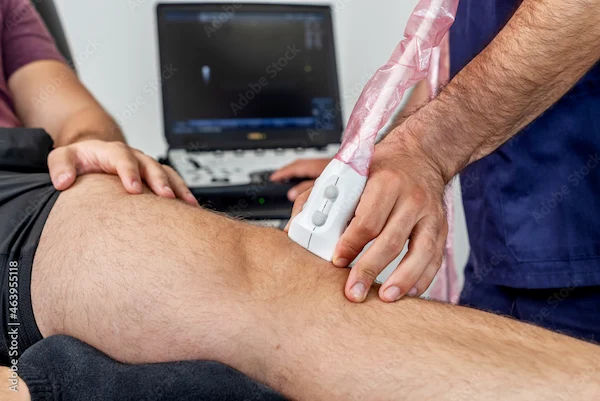Understanding Toxic Shock Syndrome and Its Management
Know about the toxic shock syndrome, who is at risk, symptoms, diagnosis, prevention and treatment of TSS. Learn more about when to see doctor and more.

Written by Dr. Rohinipriyanka Pondugula
Reviewed by Dr. D Bhanu Prakash MBBS, AFIH, Advanced certificate in critical care medicine, Fellowship in critical care medicine
Last updated on 13th Jan, 2026
.webp?tr=q-80,f-webp,w-350,dpr-2,c-at_max 700w)
Introduction
Toxic Shock Syndrome (TSS) is a rare but serious condition that can affect anyone, though it’s often linked to menstruating individuals who use tampons. It’s caused by toxins produced by certain bacteria, most commonly Staphylococcus aureus (staph) or Streptococcus pyogenes (strep).
While TSS is uncommon, it’s important to recognise the symptoms early because it can progress rapidly and become life-threatening if not treated promptly.
In this article, we’ll break down what TSS is, its symptoms, causes, and how it can be managed. We’ll also share some practical tips to reduce your risk and when to seek medical help.
What Is Toxic Shock Syndrome?
Toxic Shock Syndrome is a sudden, severe illness caused by bacterial toxins entering the bloodstream. These toxins trigger an intense immune response, leading to high fever, low blood pressure, and potential organ damage. While it’s often associated with tampon use, TSS can also occur due to skin wounds, surgical incisions, or infections after childbirth.
Who Is at Risk?
While anyone can develop TSS, certain factors increase the risk:
- Menstruating individuals using super-absorbent tampons or leaving tampons in for too long.
- People with skin infections or burns that allow bacteria to enter the body.
- Recent surgery or childbirth can introduce bacteria into the bloodstream.
- Using barrier contraceptives like diaphragms or contraceptive sponges for extended periods.
Consult a General Practitioner for Personalised Advice
Symptoms of Toxic Shock Syndrome
TSS symptoms develop suddenly and can worsen quickly. If you experience any of the following, seek medical attention immediately:
- High fever (sudden onset, often above 102°F or 39°C).
- Low blood pressure (feeling dizzy, faint, or lightheaded).
- Rash resembling sunburn, especially on palms and soles.
- Muscle aches, nausea, vomiting, or diarrhoea.
- Confusion or disorientation.
- Redness in the eyes, mouth, or throat.
Since TSS progresses rapidly, early treatment is crucial. If you suspect TSS, don’t wait—seek emergency care.
Causes of Toxic Shock Syndrome
TSS occurs when toxin-producing bacteria grow and release harmful substances into the bloodstream. Common causes include:
1. Tampon Use – Leaving a tampon in for too long (especially high-absorbency types) can create an environment where bacteria thrive.
2. Skin Wounds or Infections – Cuts, burns, or surgical wounds can become infected and lead to TSS.
3. Nasal Packing – Sometimes used after nosebleeds or surgery, nasal packing can harbour bacteria.
4. Childbirth or Postpartum Infections – Bacterial infections after delivery can trigger TSS.
How Is TSS Diagnosed and Treated?
Diagnosis
Doctors diagnose TSS based on symptoms, medical history, and lab tests, including:
- Blood tests to check for infection and organ function.
- Cultures from wounds, blood, or vaginal swabs to identify bacteria.
Treatment
TSS requires immediate hospitalisation. Treatment may include:
- Antibiotics to fight the bacterial infection.
- IV fluids to stabilise blood pressure.
- Medications to support organ function.
- Drainage of infected wounds if necessary.
With prompt treatment, most people recover fully, but severe cases can lead to complications like kidney failure or tissue damage.
Prevention Tips
While TSS is rare, you can reduce your risk with these precautions:
For Tampon Users:
- Change tampons every 4-8 hours.
- Use the lowest absorbency needed.
- Alternate with pads, especially overnight.
- Wash hands before inserting or removing a tampon.
For Wound Care:
- Keep cuts and burns clean and covered.
- Change bandages regularly.
- Watch for signs of infection (redness, swelling, pus).
General Hygiene:
- Avoid leaving barrier contraceptives in for too long.
- Follow post-surgery care instructions carefully.
When to See a Doctor?
If you develop sudden high fever, rash, dizziness, or confusion especially if you’ve been using tampons or have a recent wound seek emergency care immediately. Early treatment greatly improves recovery chances.
Final Thoughts
Toxic Shock Syndrome is rare but serious. By understanding the symptoms and taking preventive steps, you can protect yourself. If you suspect TSS, don’t delay get medical help right away.
Consult a General Practitioner for Personalised Advice
Consult a General Practitioner for Personalised Advice

Dr. Rajib Ghose
General Physician/ Internal Medicine Specialist
25 Years • MBBS
East Midnapore
VIVEKANANDA SEBA SADAN, East Midnapore

Dr. Mainak Baksi
General Practitioner
13 Years • MBBS , MD (MPH)
Howrah
Mainak Baksi Clinic, Howrah
(50+ Patients)

Dr. Ashita Kuruvilla
General Physician/ Internal Medicine Specialist
7 Years • MBBS
East Midnapore
VIVEKANANDA SEBA SADAN, East Midnapore

Dr. Moumita Roy
General Physician/ Internal Medicine Specialist
8 Years • MBBS , MD (Anesthesiology)
Kolkata
VDC Clinic, Kolkata

Dr. Rupam Chowdhury
Orthopaedician
10 Years • MBBS, DNB (Ortho.)
Kolkata
MCR SUPER SPECIALITY POLY CLINIC & PATHOLOGY, Kolkata
Consult a General Practitioner for Personalised Advice

Dr. Rajib Ghose
General Physician/ Internal Medicine Specialist
25 Years • MBBS
East Midnapore
VIVEKANANDA SEBA SADAN, East Midnapore

Dr. Mainak Baksi
General Practitioner
13 Years • MBBS , MD (MPH)
Howrah
Mainak Baksi Clinic, Howrah
(50+ Patients)

Dr. Ashita Kuruvilla
General Physician/ Internal Medicine Specialist
7 Years • MBBS
East Midnapore
VIVEKANANDA SEBA SADAN, East Midnapore

Dr. Moumita Roy
General Physician/ Internal Medicine Specialist
8 Years • MBBS , MD (Anesthesiology)
Kolkata
VDC Clinic, Kolkata

Dr. Rupam Chowdhury
Orthopaedician
10 Years • MBBS, DNB (Ortho.)
Kolkata
MCR SUPER SPECIALITY POLY CLINIC & PATHOLOGY, Kolkata




